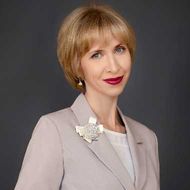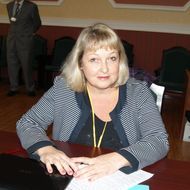- A
- A
- A
- ABC
- ABC
- ABC
- А
- А
- А
- А
- А
- HSE University
- Faculties
- Faculty of World Economy and International Affairs
- School of Asian Studies
- Events
- IV European summer school in oriental studies 'Road to the East' Malta, 2018
-
The School
21/4 Staraya Basmannaya Ulitsa, Building 5, B, Moscow
Phone: +7 (495) 772-95-90*22785
E-mail: sas@hse.ru
Likhacheva A., Strelnikova I., Kharina O. et al.
M.: CCEIS of HSE University, 2024.
Andrey V. Korotayev, Alina A. Khokhlova.
Comparative Sociology. 2025. Vol. 24. No. 3. P. 327-350.
Goliney V., Korotayev A., Malkov S. et al.
In bk.: BRICS Development in the Context of World Dynamics: Challanges and Perspectives. M.: Moscow University Press, 2024. P. 38-126.
Korotayev A., Ustyuzhanin V., Grinin L. E. et al.
. . ResearchGate, 2024

IV European summer school in oriental studies 'Road to the East' Malta, 2018
The joint project of the School of Asian Studies at National Research University «HSE» (Moscow, Russia) and Domain Academy of Higher Education (Malta)
This time our traditional European Summer School is dedicated to the cultural exchanges, historical, social, economic connections, conflicts, trade, and business in the past and present. In our classes, whether it is lectures or ensuing discussions, we will try to give a reappraisal of binary East-West approach and to show that globalization was and still is a never-ending process of cultural, technological, and business exchanges. And that today's conflicts have their roots are mainly due to the different cultural values and conflicting interests.
Today we used to think about the modern world as a system of the different states with complicated international relations, strict rules of international law, problems of migration, cultural differences, and conflicts. But let's imagine the world without borders: the world that exists as a system of comprehensive exchange of ideas, cultures, and religions, the world created by trade and by search of mutual understanding.
We will discuss how Eurasian cultural, ethnic, and trade exchanges created the world that we are living in and what kind of a world could be the global future. Drawing on cultural, economic, religious, linguistic, geographical, and social studies, utilizing an array of world-historical knowledge, we will seek to break down the boundaries of both national and regional understanding and will try to understand the global context of Eurasian development.
We will also discuss the modern Eurasian cultural and technological exchange and different approaches to business culture and entrepreneurship and how modern political and cultural conflicts could be moderated.
|
Lecturers |
Title of the lecture |
Annotation |
|
Professor Alexey Maslov Professor, Head of School of Asian Studies, Faculty of World Economy and International Relations, NRU Higher School of Economics, Moscow, Russia |
Introduction: Eurasian exchange and misunderstanding |
The world went through several waves of globalizations including local ethnic cross-exchanges in Asia and Europe and global exchanges such as Mongol exchange (invasion?), Chinese ethnocentricity, Christian globalization, Western-style globalization. We discuss the idea of European exceptionalism and modern ideas of re-globalization from Asia, as well as misunderstandings between cultures. |
Block 1. Eurasian culture and trade connections in the past and present | ||
|
Professor Alexey Maslov |
The controversies about the Silk Road. |
In spite of the fact that many countries today joined the Chinese initiative on the «New Silk Road» (or «Belt and Road») scholars still discuss the very fact of the existence of the Silk Road in the History. Did this road ever exist as a unified system of trade routes? Who were the main traders on the Silk Road? What kind of cultural exchanges circulated in the Eurasian space? Is it possible to resurrect the modern version of the Silk Road today? |
|
The world without frontiers in the past and present: trade and exchange |
The world was created by trade interests: by searching for new markets and struggling for better options, people developed new regulations and new world infrastructure. We will talk why Asia for a long time was in the lead of world trade and cultural exchange, why Europeans became addicted to Asian goods, how new cities like Shanghai were created by trade and by the mixture of cultures, and how new costumers’ demand changed the global exchange today. We will also discuss several cross-frontiers projects like «One Belt - One Road», «Eurasian Economic Association», BRICS and how it can change the future of the world. | |
|
Workshop: Business cooperation and entrepreneurship culture through Europe and Asia |
Various business cultures can connect politics and businessmen from different countries but also could create a lot of misunderstanding. We will discuss the main characteristics of business cultures and etiquettes through Asia (China, Japan, Indonesia, India ) and Europe. We will discuss the main peculiarities of negotiations, establishing business connections, building a business capacity as well as we analyze several cases of the best and the worth practices. | |
Block 2. Japanese connection | ||
|
Evgeny Steiner Professor, School of Asian Studies, Faculty of World Economy and International Relations, NRU Higher School of Economics, Moscow, Russia, Professorial Research Associate, Japan Research Centre, SOAS (University of London) |
Japanese Religions and Intercultural communications |
Japanese religions and philosophical systems (Shinto, Buddhism, and Neo-Confucianism) are a unique blend of indigenous beliefs and foreign (Indian, Chinese, and Korean) borrowings. But even more unique feature of Japanese religious life is the very important role of arts and aesthetic expression in ritual practices. The lecture explains this phenomenon and shows how various arts formed the visual and mental contexts for Japanese religiosity. We will also discuss the influence of Christianity and Western Christian missions to the traditional and modern life in Japan and how religion affected the intercultural communications. |
|
Windows to the Zen World: «Pictures of the Heart» and the «Way of tea» |
Japanese mind is a truly Zen mind which affected the traditional and modern Japanese lifestyle, worldview, arts, and even the system of business relations. The most influential form of Japanese Buddhism, Zen, found its most profound expression in literary and artistic forms from meditative poetry to landscape painting to the art of gardening. We will also talk about a tea ceremony that is well known as a syncretic art form which combines gardening, architecture, interior design, ceramics and, first of all, the art of human communication. The lecture demonstrates how the ideal atmosphere of human unity was created during tea gatherings and why it had and still has virtually religious significance. | |
|
Workshop The picture of the present-day Japan and Modern World |
Present-day Japan went through a lot of transformations and, while keeping the traditional cultural core, it adopted numerous modern and western-style traits. We will discuss modern Japanese culture, cinema, arts, dress-style, people -to-people connection, corporative way of behavior, and approach to other cultures. | |
Block 3. Christian cultures across the Eurasian frontiers | ||
|
Professor Alexey Muraviev, Ph.D. Associate professor, School of Asian Studies, Faculty of World Economy and International Relations, NRU Higher School of Economics, Moscow, Russia |
Transcultural Factors of the Asian Christianity |
Christianity got deeply rooted in Asia since 1 AD. But it took different turns in the Near East, in China, and in Central Asia. What cultural types it represented within local cultures. How did it help to go transcultural up to present day? |
|
Workshop: Reformulating Oriental and Occidental in Global Culture |
Orientalism was a much-criticized theme in the West. At the same time, Orientalizing trends have been popular in the West since the Middle Ages. In the global context, all these trends were subject to reformulating. What has been a sign of a colonial past got a new meaning of a dialogue. So, we will discuss the picture of "Oriental" and "Western" in present-day Europe and Asia. | |
|
Writing Language- writing Religion: Transculturality and Islam in the past and present |
Near Eastern religions were always connected with the encoding systems – scripts they used to write down their sacred books. Buddhism, Christianity, and Islam brought to the East not only their religions but their scripts as well. We will speak about how these scriptures formed main trends in culture and business. And what does that mean for the transcultural exchange in the global world? | |
Block 4. Understanding the Cross-road | ||
|
Andrey Chuprygin, Senior Lecturer, School of Asian Studies, Faculty of World Economy and International Relations, NRU Higher School of Economics, Moscow, Russia |
Moderating conflicts in the modern cross-cultural world: Europe, Asian and the Middle East Lecture and workshop |
The world is full of conflicts and contradictions – religious, military, business and many others. Terroristic threat including cyber terrorism in Asia, Middle East, and Europe became a part of everyday life. We will discuss how differences in cultural understanding lead to the political and trade conflicts and how all these conflicts could be moderated. |
|
Malta in the cross-road of civilizations |
The history, culture, and development of Malta as a crossroad of European and Oriental civilizations. | |
|
Wrap-up: 2 seminars/master-classes (90 min each) and Final Project | ||
Price: 1500 euros
It includes:
- Registration fee
- Tuition
- Accommodation (host family, shared, bed and breakfast)
- Lunches and coffee /tea breaks
- Airport transfer to accommodation and back
- Excursions around Malta and to Gozo and Camino islands
Extra-curriculum activities
|
Courses and activities |
Schedule |
Cost (per one person) |
|
English language courses (intermediate level, minimum number of students – 5) |
every day (except weekends, 90 min. per day) |
100 euro per week |
|
Arabic language course (intermediate level, minimum number of students – 5) |
every day (except weekends, 90 min. per day) |
100 euro (Free for HSE students) |
|
Qigong (breathing exercises) and Kungfu training (group no less than 12 people) |
every day (except weekends) |
100 euro |
|
“Highlights of Malta” history excursions |
Weekends |
Included in the main program |
|
Gozo and Camino islands - visit (the second and third-largest islands in Malta archipelago full of historical attractions). |
Weekends |
Included in the main program |
|
Italy (Sicily) one-day visit |
Weekends (by request) |
150 euro
|
- About
- About
- Key Figures & Facts
- Sustainability at HSE University
- Faculties & Departments
- International Partnerships
- Faculty & Staff
- HSE Buildings
- Public Enquiries
- Studies
- Admissions
- Programme Catalogue
- Undergraduate
- Graduate
- Exchange Programmes
- Summer Schools
- Semester in Moscow
- Business Internship
-
https://elearning.hse.ru/en/mooc/
Massive Open Online Courses
-
https://www.hse.ru/en/visual/
HSE Site for the Visually Impaired
-
http://5top100.com/
Russian Academic Excellence Project 5-100
- © HSE University 1993–2025 Contacts Copyright Privacy Policy Site Map
- Edit


